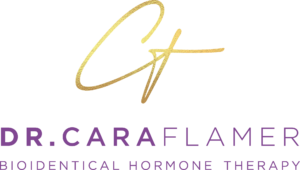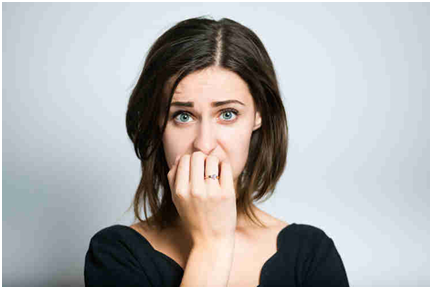A lot of my understanding of hormones came from my post-medical school training, when I began taking courses in Integrative medicine. One of the things I learned when I began working with women in the field of BHRT was that anxiety is quite commonly a symptom of hormone imbalance. If you balance your hormones and take a few of the supplements I will describe below, you may find that your anxiety significantly improves.
Anxiety is something many of us experience at different times in our life. It can happen when something stressful is going on, or if you are going through a life-transition. Or maybe you are going through a rut and your mood is more on the depressed side…anxiety often accompanies depression. In some cases the source of the anxiety is identifiable, and in other cases it is not- which leaves you feeling confused and unsure of what to do. In some cases the anxiety can affect your function to the point that it is difficult for you to work, sleep or engage in your life or relationships- and in this case you may need medication or therapy to help you get back on track.
Many of the cases of anxiety that I see in my practice are the result of two things:
1. Stress hormone imbalance
2. Sex hormone imbalance
How do you know if you are anxious because of imbalanced stress hormones or imbalanced sex hormones (progesterone, estrogen)?
Symptoms of abnormal stress hormones:
-you are wired and running on adrenaline
-you are also tired and wiped
-it’s hard to unwind even when you feel tired
-you have sugar cravings
-your sleep is interuppted
-you find it hard to fall asleep
-you feel panicky at times
-you are irritated easily
-when you have down-time, you often “crash”
Symptoms of sex hormone imbalance:
-your sleep is interuppted or its hard to fall asleep
-you may feel hot at night while you sleep
-you have PMS (moodiness, anxious, sadness, breast pain, bloating, fatigue, headaches)
-you have menstrual symptoms like heavy periods, cramping
-your sex drive is low
-your periods are irregular or you are perimenopausal
These 2 scenarios of hormone imbalance are actually quite related. Any time stress is going on for a prolonged period of time, it is going to affect your hormones. Stress affects our stress hormone, cortisol. Cortisol affects adrenaline, as well as other neurotransmitters in our brain, such as serotonin, dopamine and GABA. All of these neurotransmitters are involved in regulating mood, so if they are out of balance, you are likely to feel it emotionally.
High states of cortisol also affect progesterone, causing a reduction in your progesterone levels as your body prioritizes using progesterone to make cortisol. The effect of this is that estrogen levels may be poorly balanced by progesterone, leaving an “estrogen dominance”. Estrogen dominance can lead to pre-menstrual symptoms such as anxiety, moodiness, breast soreness, bloating, fatigue and headaches. When a women is peri-menopausal and getting irregular periods, she exists in a more chronic state of low progesterone/estrogen dominance and this can cause her to feel chronically anxious. I commonly see women in their late 40’s presenting with new onset anxiety and panic attacks- symptoms that developed when their cycles became irregular- and their anxiety disappears when they begin using progesterone.
Here are some things you can do to help reduce your anxiety that accompanies these two types of hormone imbalance:
1. Serotonin is known as the “happy hormone”. It’s precursor is 5HTP (5 hydroxy tryoptophan). During states of prolonged stress, cortisol is high and this can result in less serotonin being produced. The effect of this is that your mood can dip and you may feel anxiety. One of the nutritional support products you can try taking to lift your mood and calm your nerves is 5HTP. Taking it regularly can increase serotonin production and help alleviate your symptoms. (If you are currently taking anti-depressants this supplement may interact with your medication, so it is best not to take this when on antidepressants).
2. GABA is an inhibitory neurotransmitter. It’s role is to slow down neurotransmission. This causes your mind to relax- a wonderful thing for those people who tend to ruminate and worry excessively. When cortisol is running high or progesterone is running low, you may find your mind is more active and can distract you with worries, fears and other negative thoughts. Taking GABA as nutritional support (supplement) can help calm your mind and ease your anxiety, without causing over-sedation or grogginess.
3. Theanine is an amino acid that acts to calm the mind, similar to GABA. It increases the alpha wave state in the brain- which is a state of calmness. It can be taken in addition to or as an alternative to GABA. It is great to use as well for the active-mind that is distracting you with negative thoughts. If you take it before bed, it may also help you sleep- because your mind won’t be as active and distracting.
4. Relora is a wonderful plant-based supplement with anxiety reducing properties. It also helps restore adrenal balance and reduce the “wired” feeling that accompanies the stress response.
I also recommend having your adrenal hormones and sex hormones assessed in more detail to see if you may benefit from bio-identical hormones. In some cases, anxiety won’t fully go away until the hormone imbalance is restored with the use of a bio-identical hormone. If you have obvious menstrual or pre-menstrual symptoms, it may be best for you to work with a naturopath or integrative MD at the same time as you begin trying the supplements mentioned above, to ensure a comprehensive treatment approach.
If you ever find that your anxiety is debilitating, affecting your function, or getting worse, and nothing “natural” is helping- it is important to seek help from your medical doctor.

